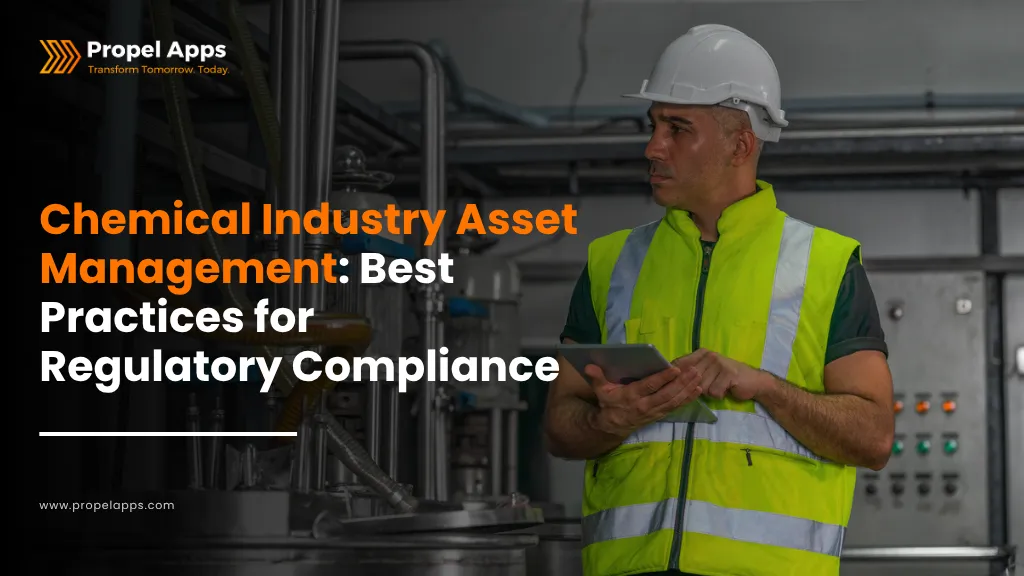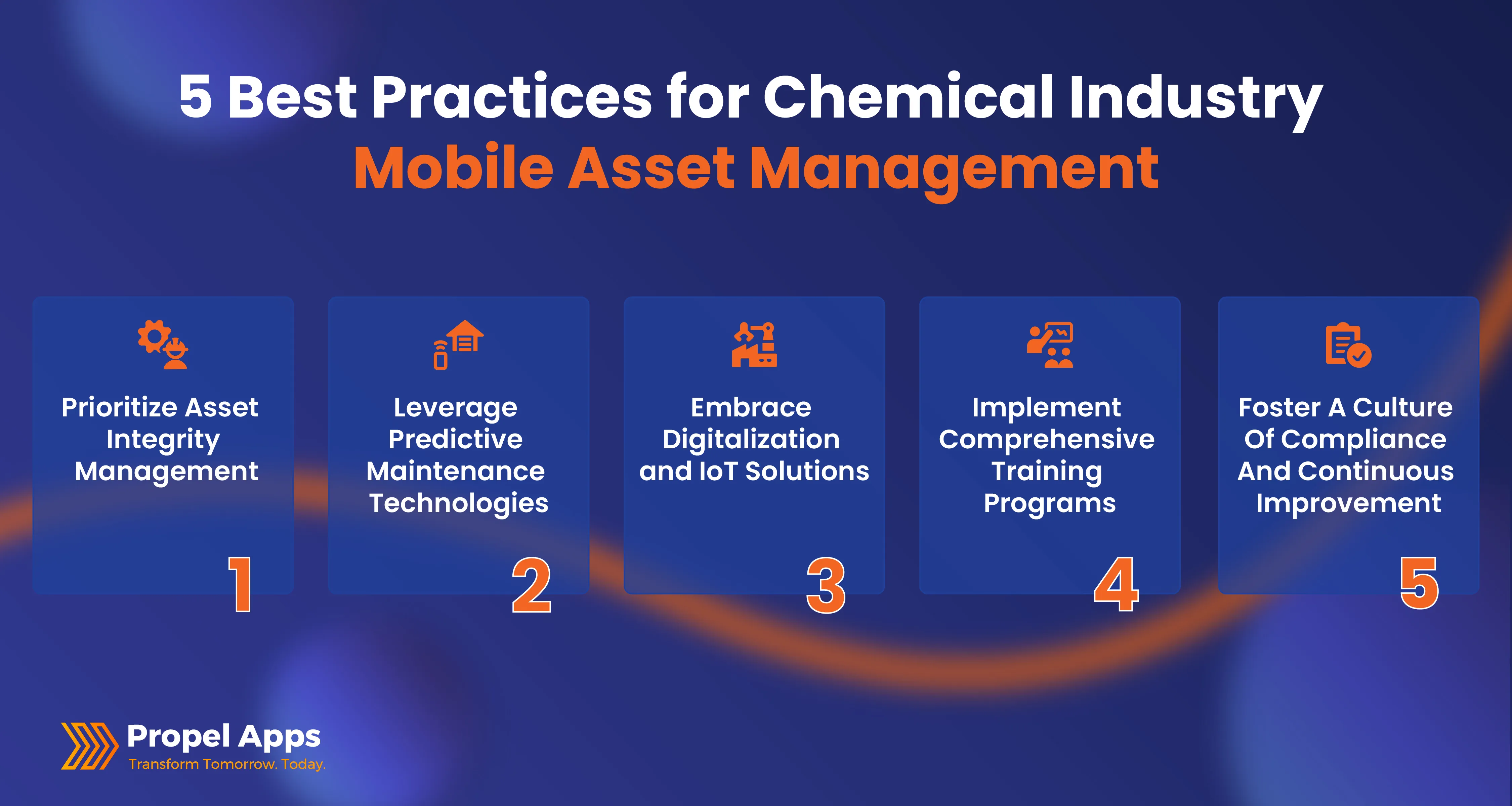
The chemical industry operates in a dynamic landscape where chemical industry asset management best practices are not just beneficial but essential for ensuring regulatory compliance, safety, and operational efficiency. Plant managers, technicians, and maintenance personnel play a critical role in upholding these practices.

This blog dives into essential chemical industry asset management best practices specifically tailored to the chemical sector, supported by key statistics to guide professionals towards achieving regulatory adherence and operational excellence.

In the chemical industry, ensuring asset integrity is paramount for both regulatory compliance and safety. A study by the American Institute of Chemical Engineers (AIChE) revealed that a staggering 46% of asset failures can be attributed to inadequate maintenance. Implementing a robust chemical industry asset management system is crucial. This system should include regular inspections, condition monitoring, and preventive maintenance schedules. By proactively identifying and addressing asset integrity issues, plants can significantly mitigate risks and prevent regulatory violations.
Predictive maintenance technologies such as vibration analysis, infrared thermography, and ultrasonic testing offer significant advantages in chemical industry asset management. According to a report by McKinsey, predictive maintenance can reduce maintenance costs by up to 30% and increase equipment uptime by 20-50%. By harnessing data analytics and predictive algorithms, maintenance personnel can predict potential equipment failures, schedule maintenance activities strategically, and optimize asset performance while ensuring regulatory compliance.
The adoption of digitalization and Internet of Things (IoT) solutions revolutionizes the chemical industry asset management scenario. Research by Deloitte indicates that 94% of chemical industry executives believe that digitalization will fundamentally change their operations. IoT-enabled sensors, coupled with advanced analytics platforms, provide real-time insights into asset health, performance, and compliance status. By leveraging digital twin technology, plant managers can simulate asset behavior, optimize maintenance strategies, and ensure regulatory compliance with greater precision and efficiency.
Investing in training and skill development is essential for equipping plant personnel with the knowledge and competencies required for regulatory compliance. According to a survey National Safety Council, 69% of workplace accidents in the chemical industry are attributed to human error. By offering comprehensive training programs on safety protocols, regulatory requirements, and chemical industry asset management practices, organizations can empower their workforce to identify potential hazards, adhere to compliance standards, and mitigate risks effectively.
Creating a culture of compliance and continuous improvement is indispensable for sustained regulatory adherence in the chemical sector. A study published in the Journal of Loss Prevention in the Process Industries found that organizations with strong safety cultures experience 70% fewer accidents than those with weak cultures. By promoting open communication, accountability, and collaboration among employees, organizations can instill a proactive approach to compliance and drive ongoing improvements in chemical industry asset management best practices.
In the above context, a right mobile asset maintenance solution or precisely a safety management solution as offered by Propel Apps is the best bet for chemical industries, looking to enforce safety practices and compliances. This solution lets you ensure workplace safety and efficiency by seamlessly integrating with your work order system for a unified, automated, and mobile-first safety approach. Using this solution, you can facilitate:
In other words, this fully integrated, mobile-first HSE solution ensures a safer and more efficient workplace. To learn more about this solution and how it can help make your organization safer and more efficient, schedule a free demo with us.
In an era of heightened regulatory scrutiny and evolving industry standards, adopting asset management best practices is paramount for the chemical sector. By prioritizing asset integrity management, leveraging predictive maintenance technologies, embracing digitalization and IoT solutions, implementing comprehensive training programs, and fostering a culture of compliance and continuous improvement, plant managers, technicians, and maintenance personnel can confidently navigate regulatory complexities and uphold the highest standards of safety, sustainability, and operational excellence.
Remember, regulatory compliance isn't just about ticking boxes; it's about safeguarding lives, protecting the environment, and securing the future of the chemical industry. Request a demo.
